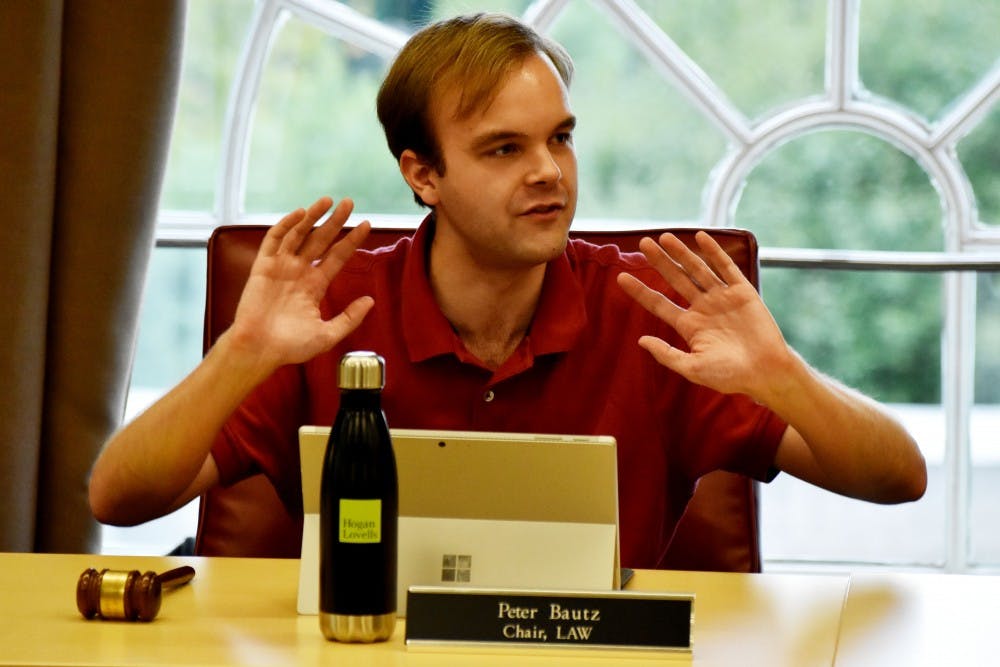The University Judiciary Committee met Sunday to hear a presentation from the University’s Title IX coordinators on how cases in their department are conducted. This is part of an ongoing series of speakers that illuminates the different judiciary and legal departments of the University that may interact with the UJC.
Emily Babb, the University’s assistant vice president for Title IX compliance and Title IX coordinator, and Deputy Title IX Coordinator Akia Haynes explained the purpose of their positions and their role within the University.
The Title IX team is “responsible for enforcing policies about discrimination and harassment,” Babb said.
This includes investigating possible University policy violations and providing resources to faculty, students, and staff.
“We also do proactive outreach training,” Babb said. “We work with students, faculty, and staff to make sure they know what is covered [by University policy].”
In addition to sexual harassment and assault, the Title IX office can investigate claims of electronic harassment or “cyberstalking” according to Haynes. The office helps protect people who come forward as witnesses or reporters from any retaliation.
In addition to investigating, the Title IX office helps coordinate those who report incidents with support resources.
“CAPS and the Women’s Center are confidential resources that are not going to report what they learn to our office,” Haynes said.
Babb went on to describe the specifics of what happens when a case is reported to the Title IX office. Students, staff, faculty and third parties can report cases, even if they are not the person affected.
There are two paths the parties involved can choose — formal resolution or alternative resolution, which can consist of counseling, training and other confidential resources.
“Alternative resolution is a voluntary process,” Babb said.
Formal resolution, however, “is an official investigation by a neutral investigator,” according to Babb. A neutral investigator from the Title IX office notifies all those involved with the investigation, then gathers evidence and interviews witnesses with which a report is made. The report is then given to a hearing panel which then decides the case.
The panel makes its decisions based on a preponderance of the evidence, meaning evidence must be “more likely than not,” according to Babb.
“UJC doesn’t hear Title IX cases,” said Peter Bautz, a third-year Law student and UJC chair. “But sometimes the Title IX coordinators hear cases that include UJC charges.”







